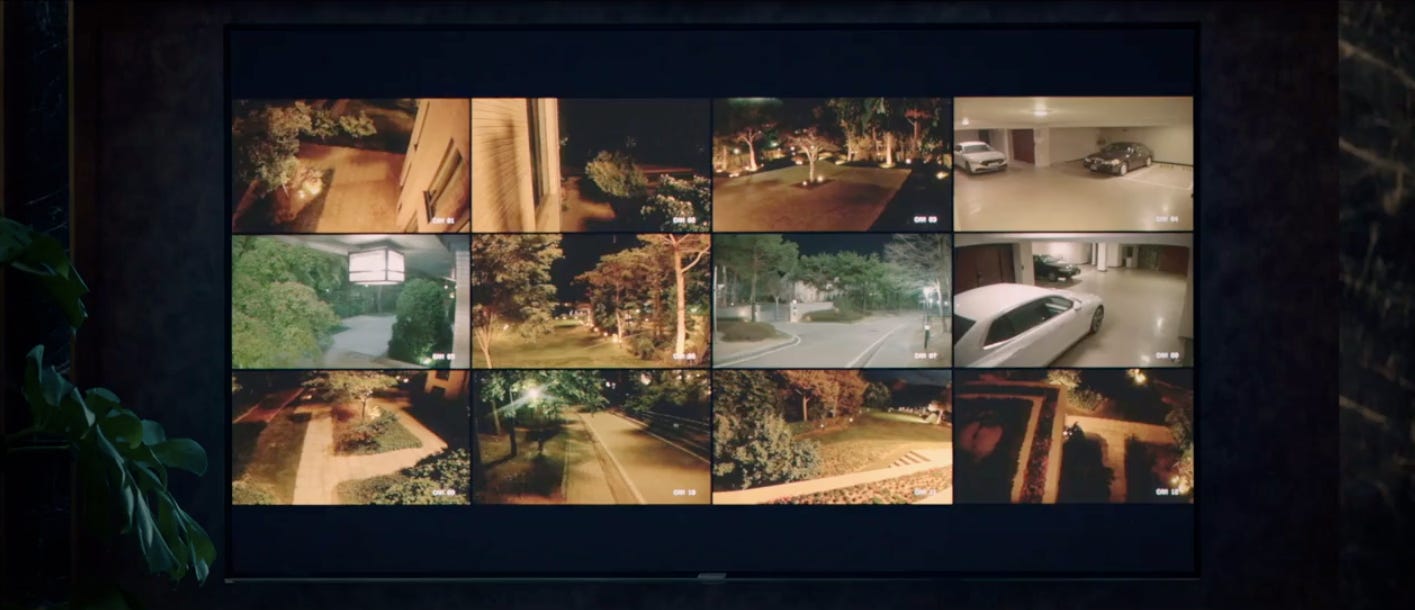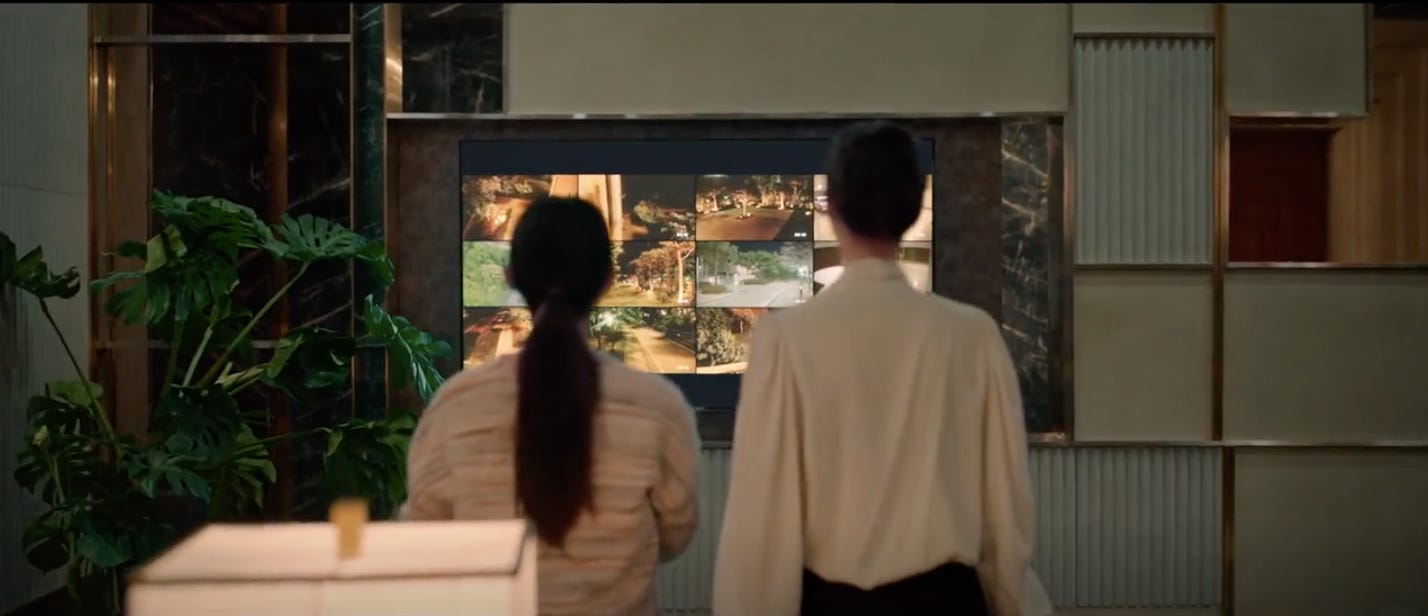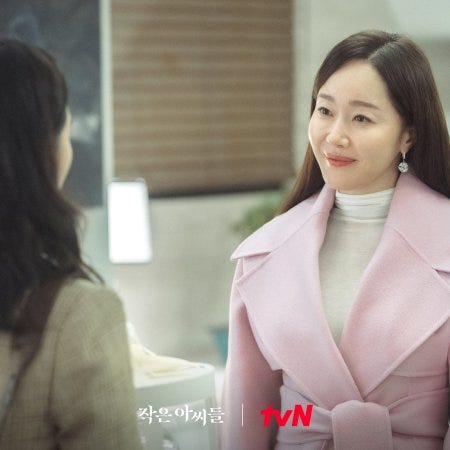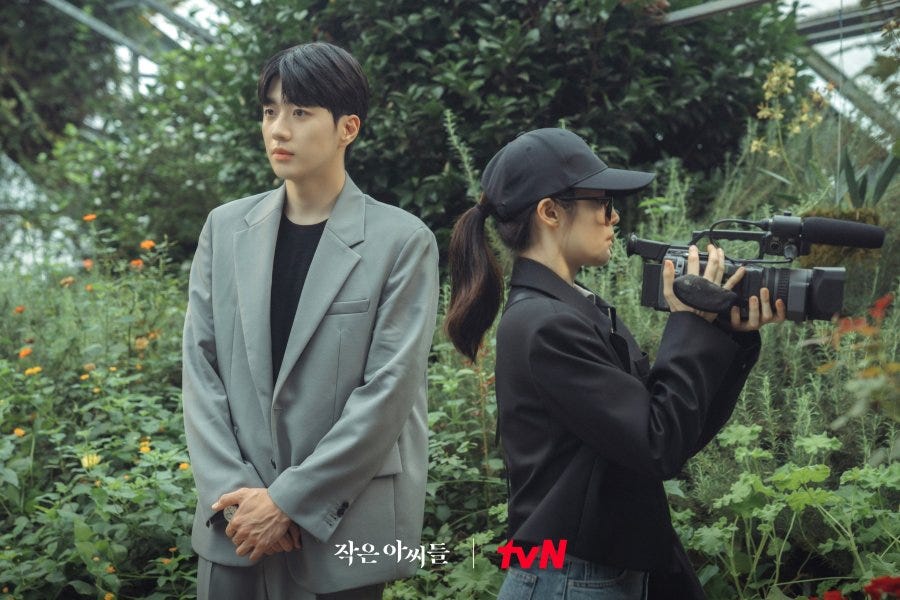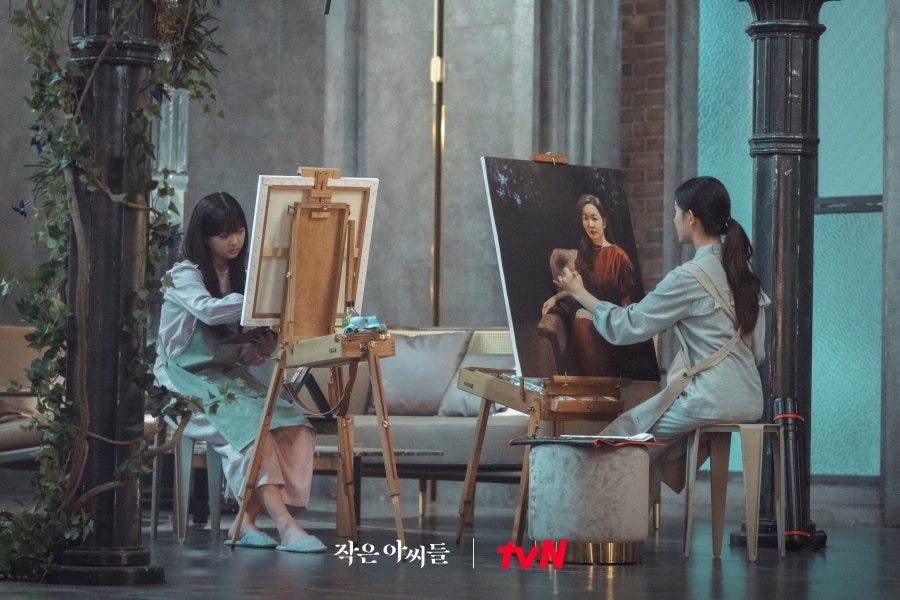Little Women (2022) Episodes 5 and 6 Musings
The doll house that has In-hye entranced yet again works as a key to unlocking the writer’s meticulous intentions for the latest episodes. The doll house symbolizes the ideal family and is a metaphor for the functional family that eludes both In-hye and Hyo-rin. In-hye’s personal fixation with the miniature domicile brings to the surface the hole in her heart, the gaping wound of being abandoned by her parents due to their irresponsible antics but especially in relation to money. Hyo-rin, on the other hand, barely copes with the illusion of stability that her ambitious parents present to the world. The so-called happy union between Park Sang-jae and Won Sang-a that they present to the world is a piece of well-constructed fiction that turns the mansion into a living doll house. It is entirely for show (and the cameras). Each member of the household plays their part working from a playbook and any attempt to veer off the script is met with violent disapproval as the Oh sisters have become privy to firsthand. The doll house is a metaphor for control as well as manipulation and there’s a technological equivalent of it via the close-circuit television cameras placed strategically all over the house. The video footage from all the cameras creates a montage that looks like parts of a doll house when viewed on the large television screen.
The Oh sisters are Won Sang-a’s playthings — dolls if you like. Each figure has its place in the scheme of things. Both sisters are desperate to cast their lives of relative want aside and Sang-a masterly manipulates their weaknesses, tugging at their heart strings like a puppet master — a role she’s gleefully carved out for herself. She houses them and then plays dress up with In-joo. To gain the latter’s confidence Sang-a constructs a tale of woe that frames her as a victim of sorts: Her marriage is not a happy one. She too is just somebody’s doll. She’s a trophy wife that’s trotted out by her politically ambitious husband so that his public persona is greatly enhanced. Indeed her delivery is pitch perfect. Won Sang-a is happy to go along as it’s a mutually beneficial arrangement. The thought of being the president’s wife thrills her and then there’s her secret agenda. Whatever that might be. Hence, they’re allies with benefits.
The irrepressible actress in Sang-a enjoys not only the casting process but bagging the director’s chair. Sang-a is clearly ready to display her flair for the dramatic. She takes off to Singapore at a whim (or perhaps not) without telling the husband who reacts to her disappearance predictably. It is perfectly choreographed even down to the right prescription drugs for the emotionally troubled Hyo-rin who is no stranger to her parents’ marital upheavals. When things don’t go well for the lady of the house she escapes to her comatosed father’s bedside for a bit of me time away from the domineering other half.
So the Park-Won doll house is not the haven that In-hye believed it to be. So why hang around? Especially when the prospect of being killed is an ever-present reality. No doubt it’s for the seemingly pitiful Hyo-rin. In-joo, on the other hand, nervously remains in the cuckoo’s nest because of In-hye, the money and to find out what really happened to Jin Hwa-young.
In all frankness the sisters are completely out of their depth in this cesspool of agendas, suspicion and deception. If good intentions alone could steer this ship off the dire straits and into calmer waters, much would have been achieved already. Stupidity isn’t what comes to mind when I think about what’s transpired but a kind of desperate recklessness. The sort of malady that afflicts gamblers it seems to me. The sisters might think they have nothing to lose (although it seems to me that they value their own lives too little) but it’s practically insane that they are all acting the noble idiot. It’s bad enough to be up against Park Sang-jae, the consummate politician who is opportunistic and tactical without something resembling a strategy but a serial killer and a long-running conspiracy ups the ante by several fold. It has to be said of course that the sisters haven’t always known what they’re really up against but they must sense by now that if their aunt is in fear for them and herself, there has to be something worth being circumspect about.
Regardless of who Choi Do-il really is, In-joo is lucky to have him watching her back because her decision to bring the blue orchid into her bedroom, as aromatherapy is the silliest one yet. Perhaps Won Sang-a should add hypnosis to her skill set too. Surely it must occur to In-joo that if this flower is associated with people who have died, it should be viewed with a high degree of caution at the very least.
Do-il continues to be a fascinating study and arguably the show’s most potent mystery. Who doesn’t love a good mystery especially if it comes packaged with this much charm? He’s a bright spot in a very bleak landscape. At times he behaves like he’s In-joo’s handler and other times especially when he grabs her by the shoulder, he acts like he has genuine feelings of goodwill towards her despite all the money talk. Occasionally he drops these hints that he cares about how she thinks of him. The galloping horse analogy is telling. He doesn’t mind being used by her apparently. So who is he? We seem to know a bit about his background from Jong-ho and it depicts Do-il as an unsavoury, thoroughly untrustworthy character. That however could just be his cover story like the one about the girlfriend from university dying in an accident.
If there’s a lesson that has to be learnt in this entire fiasco, it’s this — no one is really what they appear to be or say that they are. Except for the little women of the show perhaps. It’s a major theme of the drama from Great Aunt Oh to Park Sang-jae. This ultimately leads to trust issues especially if your default position is to take people as they come because you are always true to yourself.
Perhaps this is what is driving In-kyung’s obstinate self-righteousness — the fear of losing herself in the morass of moral quicksand and for her sisters to lose their way as they are caught up in the whirlwind of the Park-Won family’s sinister affairs. The love of money is the root of all kinds of evil but when there’s so little of it, the temptation to succumb to the lure of easy cash is much harder to reject. The power and access on offer becomes irresistible to the hungry or the starving. Therefore, the doll house is a mouse trap built on sand, resulting in much tears. In-kyung might be right about the diagnosis but she doesn’t have the panacea because the urgency over money falls on her deaf ears.
In the same vein, the return of the red shoes as a motif once again evokes the spirit of Hans Christian Andersen’s famous Christian tale about materialism as idolatry. For the story’s protagonist, Karen, it was a distraction from heavenly pursuits that took on a life of its own and almost destroyed her mind, body and soul. It exacted a high personal price before she came to her senses. Likewise In-joo and In-hye are witnessing firsthand how complex the gains of wealth are especially if they are illicit. It’s no a guarantee of a trip down easy street. Their single-minded pursuit of wealth is taking them on a path fraught with not only with mortal hazards but even greater uncertainty than before about their future. On hindsight jumping on the Park-Won bandwagon was never going to solve their deprivation issues. In fact it has taken their attention away from what’s really important in a scheme of things… like a loving family.




